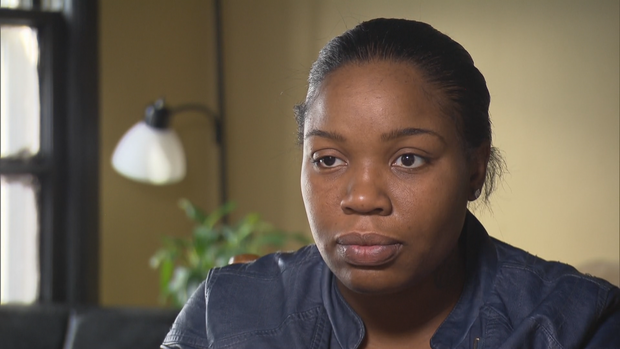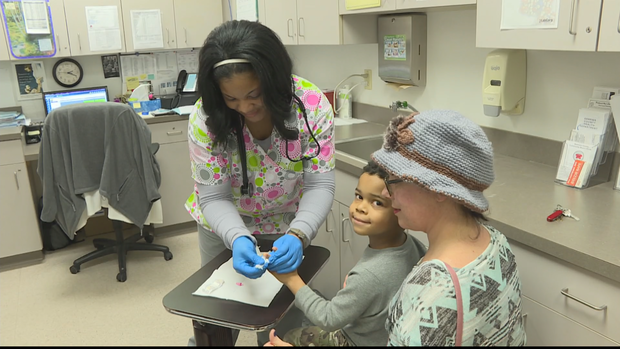Flint mother: I'm worried my son will wake up different
FLINT, Michigan -- In the Flint, Michigan water crisis, clinics are crowded with parents hoping to have children tested for lead poisoning.
At least 100 children have already shown high lead levels, but the governor told CBS News there are likely many more.
Ariana Hawk, a mother in Flint, Michigan, has to wait longer to find out if her children have lead in their blood.
"I was coming here to get our lead test results. Still no results."
Her son, Sincere, was only a year old when Flint tapped into its river for water. He is now almost three, and has rashes that his dermatologist believes are due not to lead, but the poor quality of the water.
"As soon as he gets in the tub you can see it. No kid should be going through this."
This week, his face is on TIME magazine.
"This exposure is good for everybody because we need this help. We've been going like this for a year and a half before anybody even knew about the water."
The Genesee County Health Department is overwhelmed.
Nursing Director Toni Larocco says she has conducted hundreds of tests, and her staff is working over time.
"I need more staffing to get the process sped up."
Larocco explained what happens when someone tests positive for lead. "We have nurse case managers. They go out and do home visits, they talk about nutritional aspects that can really help re-mediate some of that lead exposure."
Hawk says even if her son's test comes back negative, she'll still be concerned.
"I'm still going to be worried as a parent, because for a year and a half he was drinking this water with the lead and all these chemicals in it. I'm worried that 5 or 6 years down the road, or any day now, he'll wake up different."
She has good reason to worry, because lead only stays in your blood for two weeks. After that, it travels to your bones and nervous system, and can stay there for decades.


